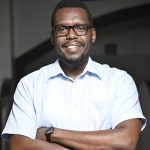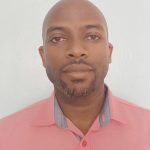SCHEDULE DETAILS Information of Event Schedules
World is committed to making participation in the event a harassment free experience for everyone, regardless of level of experience, gender, gender identity and expression
WORKSHOP 5: PLASTIC PACKAGING NEEDS TO GET UNPACKED
In Southern and Eastern Africa, various commitments to transition to a circular economy for plastics are on the rise from both the public and private fronts. These include the implementation of private sector voluntary initiatives such as the South African and the Kenya Plastics Pacts, and the introduction of new and amended policies including the mandatory Extended Producer Responsibility (EPR) Scheme. Compliance and enforcement, however, remain major issues, due to the lack of clear targets in policies.
This workshop will discuss recent commitments to the EPR and the potential impact of the “End Plastic Pollution: Towards an internationally legally binding instrument” in Africa. It will also set the scene for the Kenya Plastics Pact Summit, taking place the following day on the 27th of October, 2022.
SCHEDULE SPEAKERS:
De Kock Lorren, Alex Kubasu, Lieselotte Heederik, Thais Vojvodic
WORKSHOP 6: RENEWABLE ENERGY AND ALTERNATIVE SERVICE MODELS
Non-renewable energy sources, particularly fossil fuels such as coal, are the dominant energy sources for electricity generation in South Africa. As the world transforms into low carbon and inclusive society, how can the use of renewable energy sources, such as biomass and biofuels, assist Africa in its transition to a low-carbon economy? South Africa has been criticized as the most intensive G20 economy with the highest coal reliance and it is estimated that 85% of the nation’s electricity is generated using coal.
On the other hand, “Kenya has a liberalized energy sector and has made significant progress in the recent past in the formulation of renewable energy policies. Kenya’s electricity power mix is among the most sustainable in the world, with 80% of electricity coming from renewable sources.”
This session will seek solutions; renewable energy, regenerative models and a just transition in Africa. We will share and compare national and private best practices, and address challenges that hinder the achievement of more sustainable alternatives.
SCHEDULE SPEAKERS:
Mr. Mohamed Jibril Omar, Dr. Linda Davis, Juliana Kainga, Andrew Amadi
WORKSHOP 3: ACCESS TO DIGITAL IS KEY FOR AFRICA’S DEVELOPMENT
With a young population, great entrepreneurial spirit and adaptability, the digital revolution is one of the biggest opportunities to make Africa thrive. However, in the current take-make-waste culture, producers are building their business models around the number of products as opposed to the quality. New designs and marketing are part of the cause of consumers’ addiction to ‘new’ products. In addition, the repair is often expensive or complex due to poorly designed products. How can this be best managed? And what happens at the end-of-life span?
This session will shine a light on the nexus between digital and green, looking at the innovations and initiatives that have been introduced to reduce e-waste from entering landfills and promote a circular economy within the industries value chain, (with a focus on refurbishing, reuse, and re-manufacturing).
SCHEDULE SPEAKERS:
Valentine Cheruiyot, Simone Andersson, Dr. Ehud Gachugu, Mr. Olivier Vanden Ende
WORKSHOP 4: SUSTAINABLE AND ETHICAL TEXTILE & FASHION
The textile and fashion industry is a long and vast value chain that starts with farming or extraction and ends at the second-hand clothing market or beyond. Due to the current fast and global fashion industry, the negative impact is seen and felt on all the components of the value chain, from massive pressure on the production of cotton leading to soil degradation to the overwhelming waste generation since materials are designed to last short and used for a brief period and disposed of thereafter.
Shifting market demands and opportunities and the current ‘Africa is in Fashion’ trends may provide Africa the ultimate momentum to ‘change the Textile & Fashion story – for Good’. Join this session, as we explore how the use of organic material, alternative fibres, ethical production, creative traditional and contemporary skills and design, and sustainable consumption can reduce the environmental and social impact of the textile industry.
SCHEDULE SPEAKERS:
Valerie Nyamwaya, Nadia Ashraf, Ludovica D’Andria Di Montelungo, Louise Sommerlatte, Jaswinder (Jas) Bedi, EBS, MBS, Janet Chemitei, Elise Sormani, Christine-Ann Mccreath, Brian Kihindas, Bettina Heller
WORKSHOP 1: OPPORTUNITIES FOR CIRCULAR AGRICULTURE
By adopting increasingly circular, regenerative, and inclusive farming practices, Kenya has shown great potential to make its second-largest industry more sustainable overall. For instance, circular agriculture is enabling Kenya to mitigate climate change, elevate its food quality and improve food security.
Are you in the Agricultural sector? Join this workshop as we illustrate the opportunities for circular agriculture in Kenya and farming trends that have been identified as indicative of the transition to circular agriculture in the region.
SCHEDULE SPEAKERS:
Tei Mukunya Oundo, Talash Huijbers, Peter Van Leent, Elfrieke Van Galen, Claire Van Enk
WORKSHOP 2: WATER IS A SENSITIVE TOPIC
Water scarcity and ‘day zero’ have been common phrases used over the past few years, for example, in South Africa and many other parts of Africa. In Kenya and Ethiopia, droughts are a yearly phenomenon, and yet we are not conscious and smart enough with water usage when available, with a lot of people lacking access to potable water in East and Southern Africa.
This session will shine a light on what sustainable water consumption means, and available technologies to optimize sustainable systems by applying the Circular Economy principles.
SCHEDULE SPEAKERS:
Willis Ombai, Eng. Fanuel Nyaboro, Ebenezer A. Amadi, Alex Mucheru


